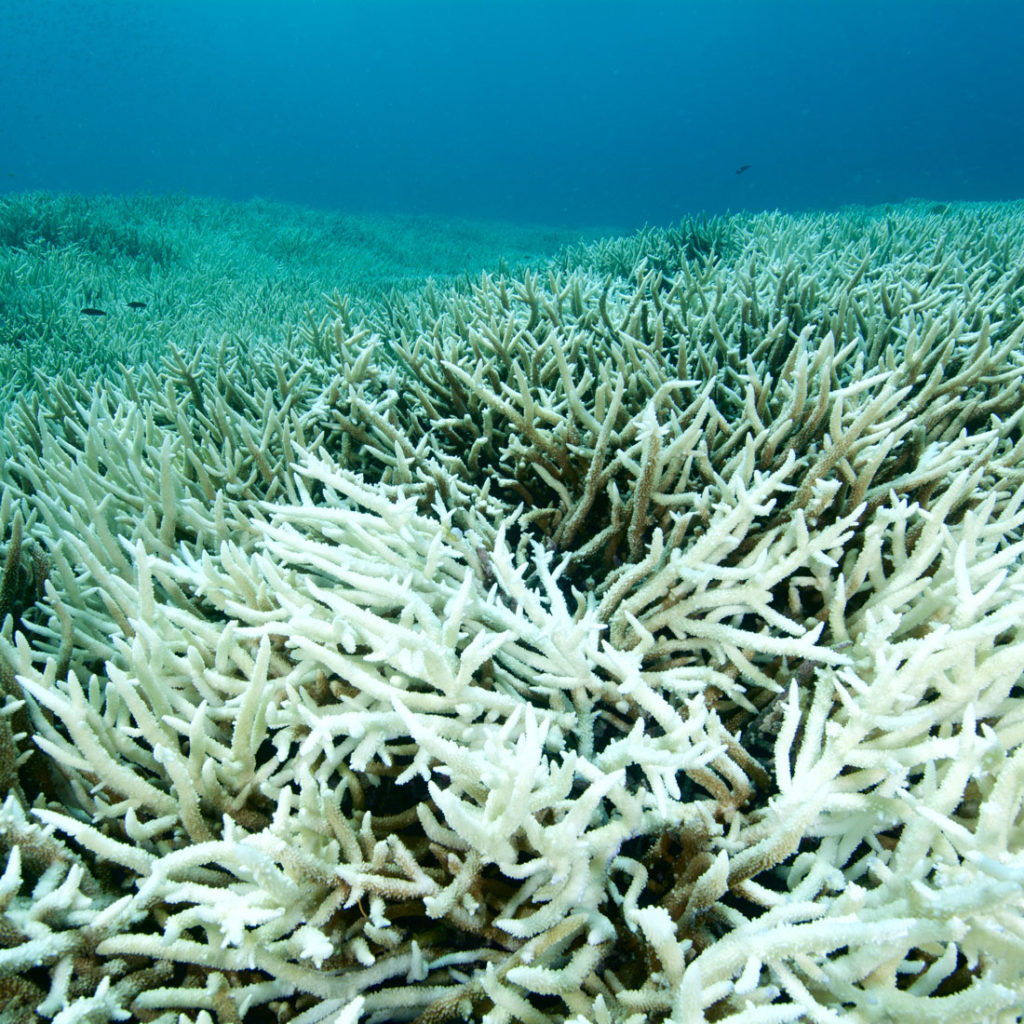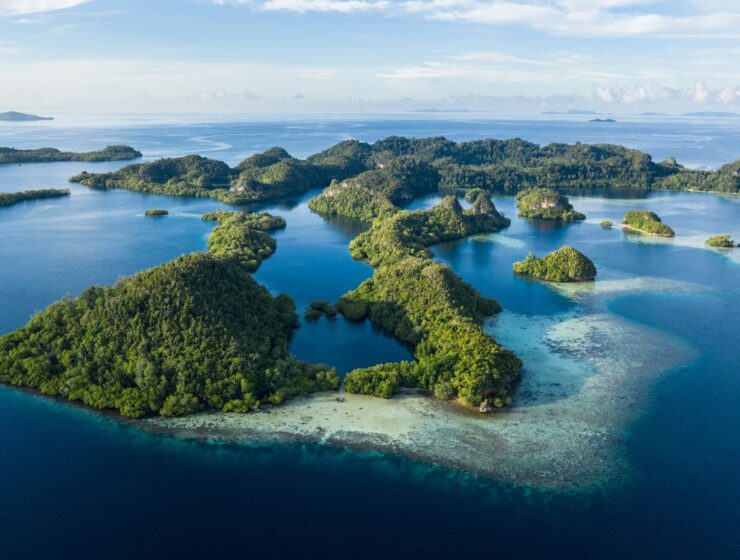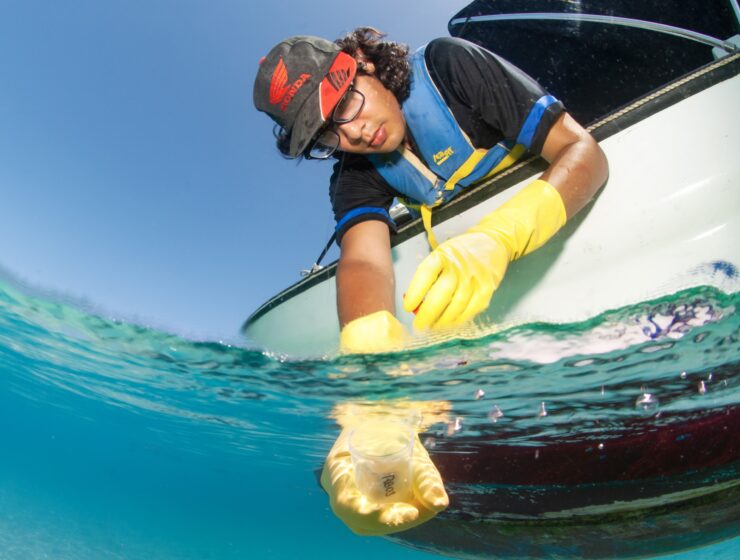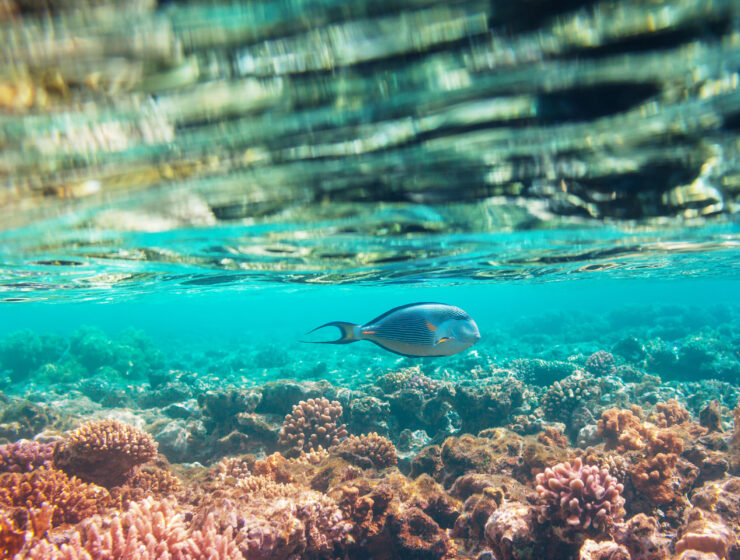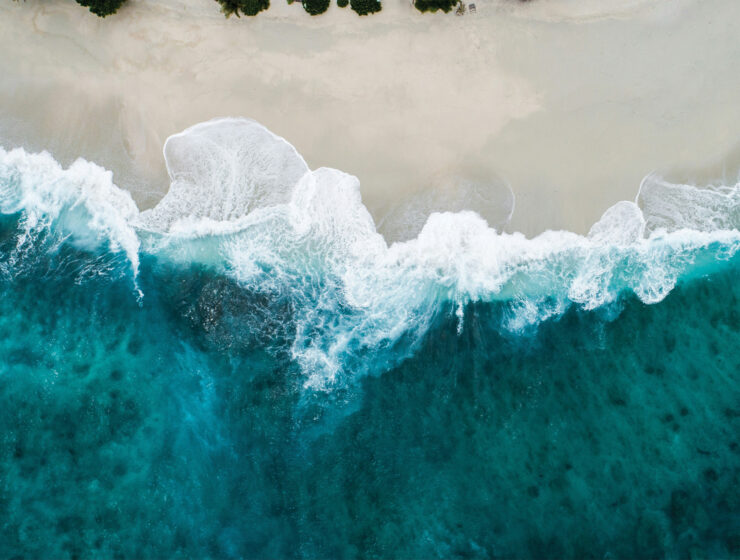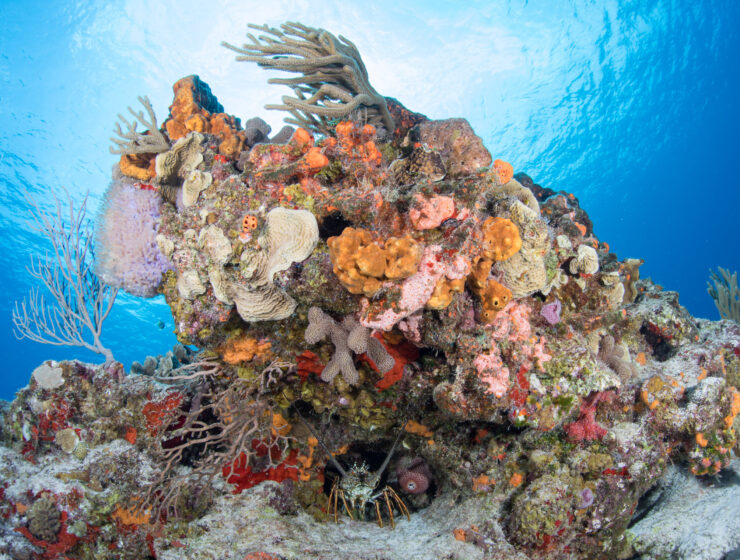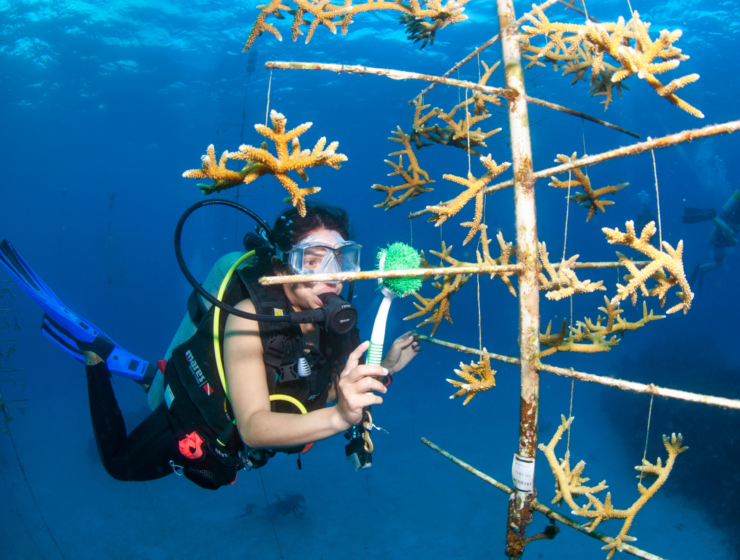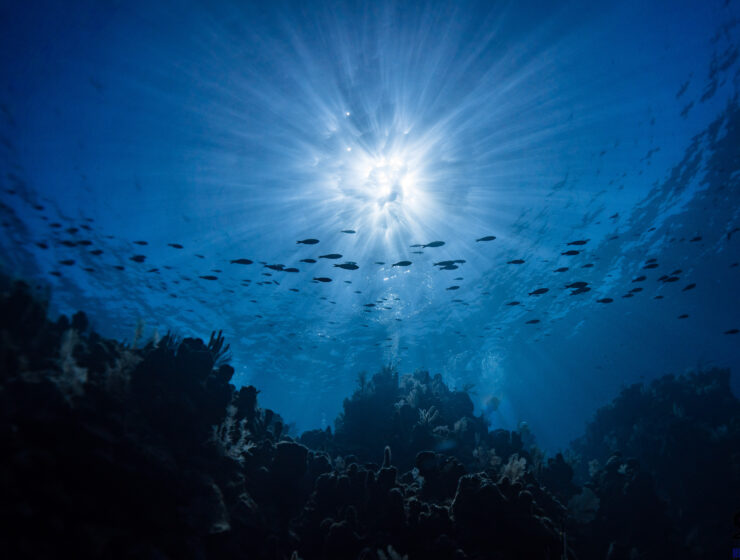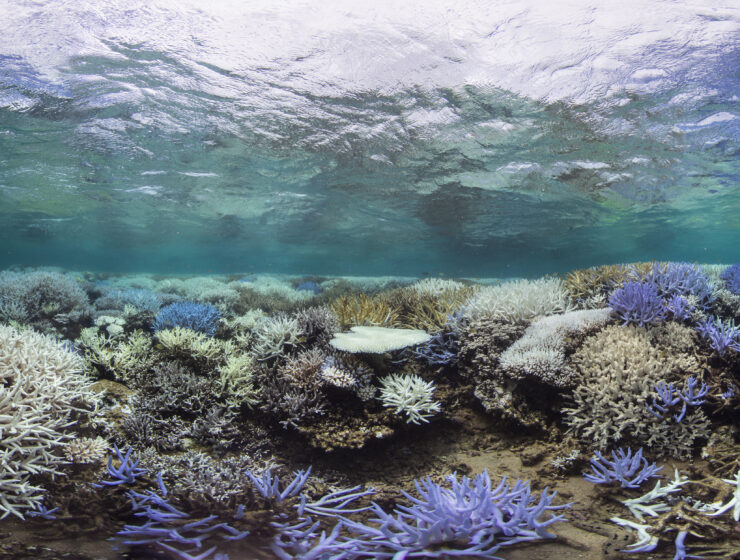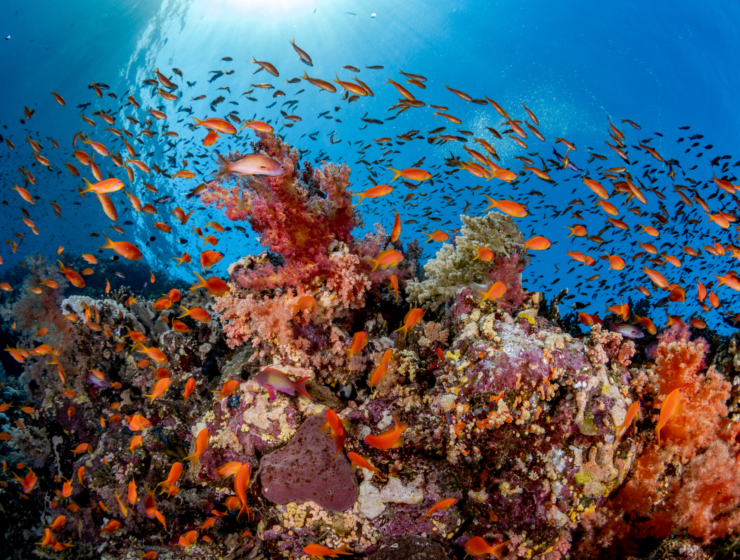We are a leader in coral reef conservation science.
Our proactive research has shown how coral reefs can successfully adapt to the effects of climate change, if humans create the conditions that help reefs evolve naturally.
We believe that strong science, key alliances, and community engagement are essential to saving and supporting reefs.
Our current scientific work includes:
Spearheading new research into coral adaptation
We are launching, supporting, and interpreting scientific research to better understand how coral reefs adapt to climate change and the conditions that help encourage that evolutionary process. Read more about coral adaptation here.
Groundtruthing datasets
We are galvanizing a global team of scientists and conservationists to “ground truth” coral reef data that is detected by satellites through the Allen Coral Atlas partnership.
Assessing adaptation potential
We are leveraging the groundbreaking Allen Coral Atlas, plus other available datasets, to identify networks of reefs that have a higher potential of adapting to climate change so they can be prioritized in conservation efforts.
Engaging with partners
We are working with a network of experts and thought leaders in coral reef conservation to integrate the results of our scientific research into conservation interventions and policies.
Regional field work
We are incorporating adaptation science into regional conservation efforts in the Hawaiian Islands and Mesoamerican region, and building local datasets about coral reef health and water quality to inform “on the ground” conservation efforts.
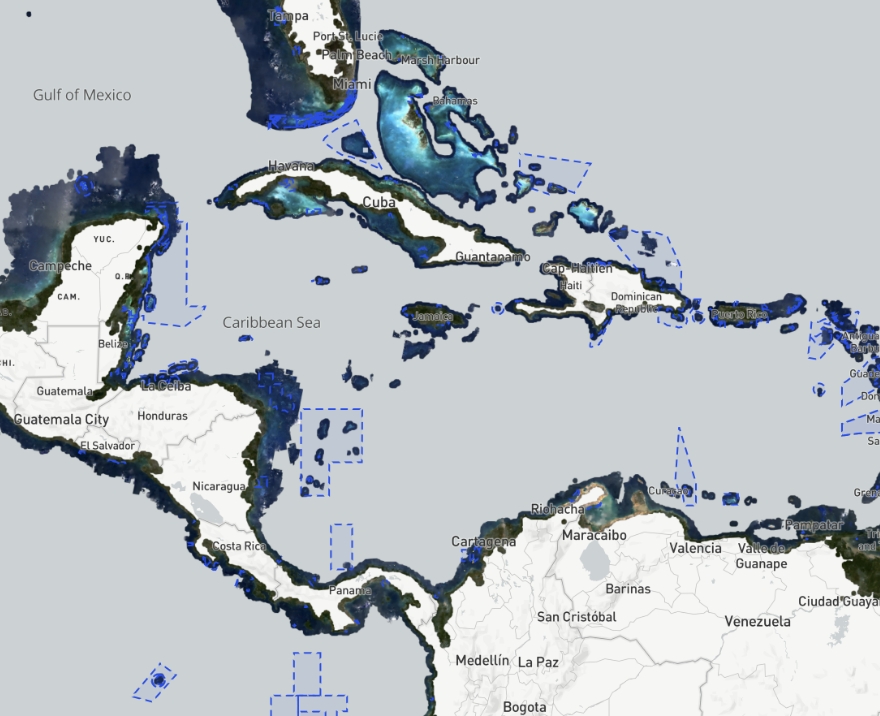
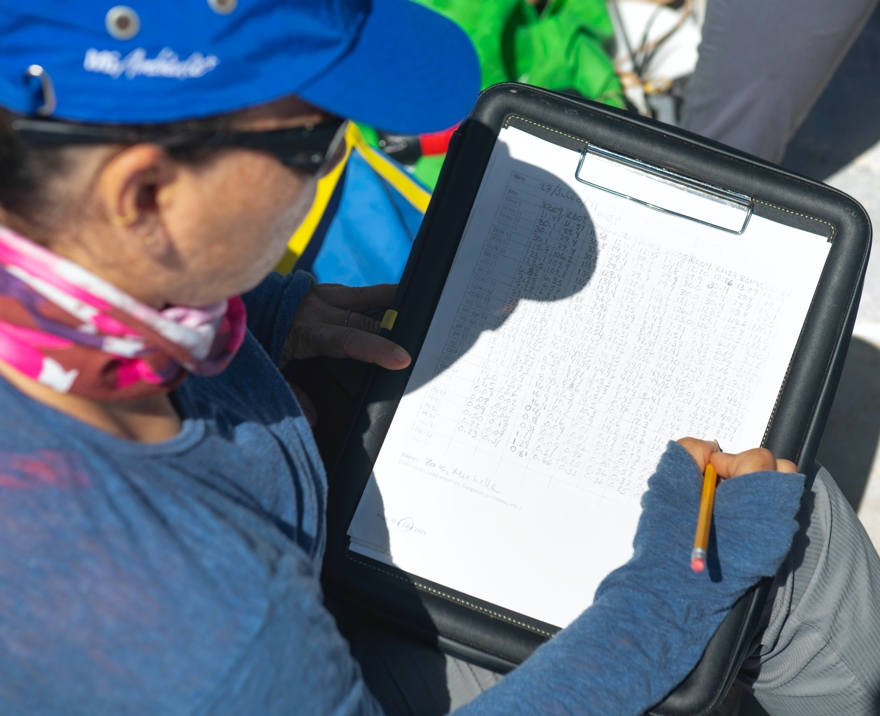
Featured Science Program
Coral Bleaching Program
We’re working with the Allen Coral Atlas to unite a global network of scientists who can get into the water and confirm coral bleaching data that satellites are detecting from space.
Read our latest scientific articles.
Evaluating the spread of stony coral tissue loss disease in the Bay Islands, Honduras
Current ecological theory predicts that random networks with dispersal shortcuts connecting distant sites can promote persistence when there is no capacity for evolution. This paper demonstrates that incorporating evolution and environmental heterogeneity fundamentally alters theoretical predictions regarding persistence in ecological networks.
Coral conservation in a warming world must harness evolutionary adaptation
To facilitate evolutionary adaptation to climate change, we must protect networks of coral reefs that span a range of environmental conditions — not just apparent ‘refugia’.… Continue Reading →
Exploring relationships between gender and collective action in artisanal fisher associations of Central Chile
Current ecological theory predicts that random networks with dispersal shortcuts connecting distant sites can promote persistence when there is no capacity for evolution. This paper demonstrates that incorporating evolution and environmental heterogeneity fundamentally alters theoretical predictions regarding persistence in ecological networks.
[Abstract]Participation and patrols promote sustainable fisheries in the Mesoamerican Reef Region.
Here we present a case study of Los Micos Lagoon, a coastal lagoon responsible for seeding fish biomass in sites with some of the highest live coral cover in the Mesoamerican Region, the Tela Bay (Honduras) reefs.… Continue Reading →
[Abstract] Can the Allen Coral Atlas indicate adaptive capacity of coral reefs?
We explore the extent to which habitat complexity, as detected by the Atlas, can inform adaptive capacity. Beta-diversity is a common index used to assess environmental heterogeneity within natural systems, indicating the change in species/habitat composition across a landscape.… Continue Reading →
Science Videos
Our scientific work is built around collaborations. It unifies academics, nonprofits, corporate partners, and conservationists, and it bridges the gap between science and communities. Our work at the local level involves communities in science that typically occurs behind closed doors—our coral reefs are better off when we are all empowered with more information.
